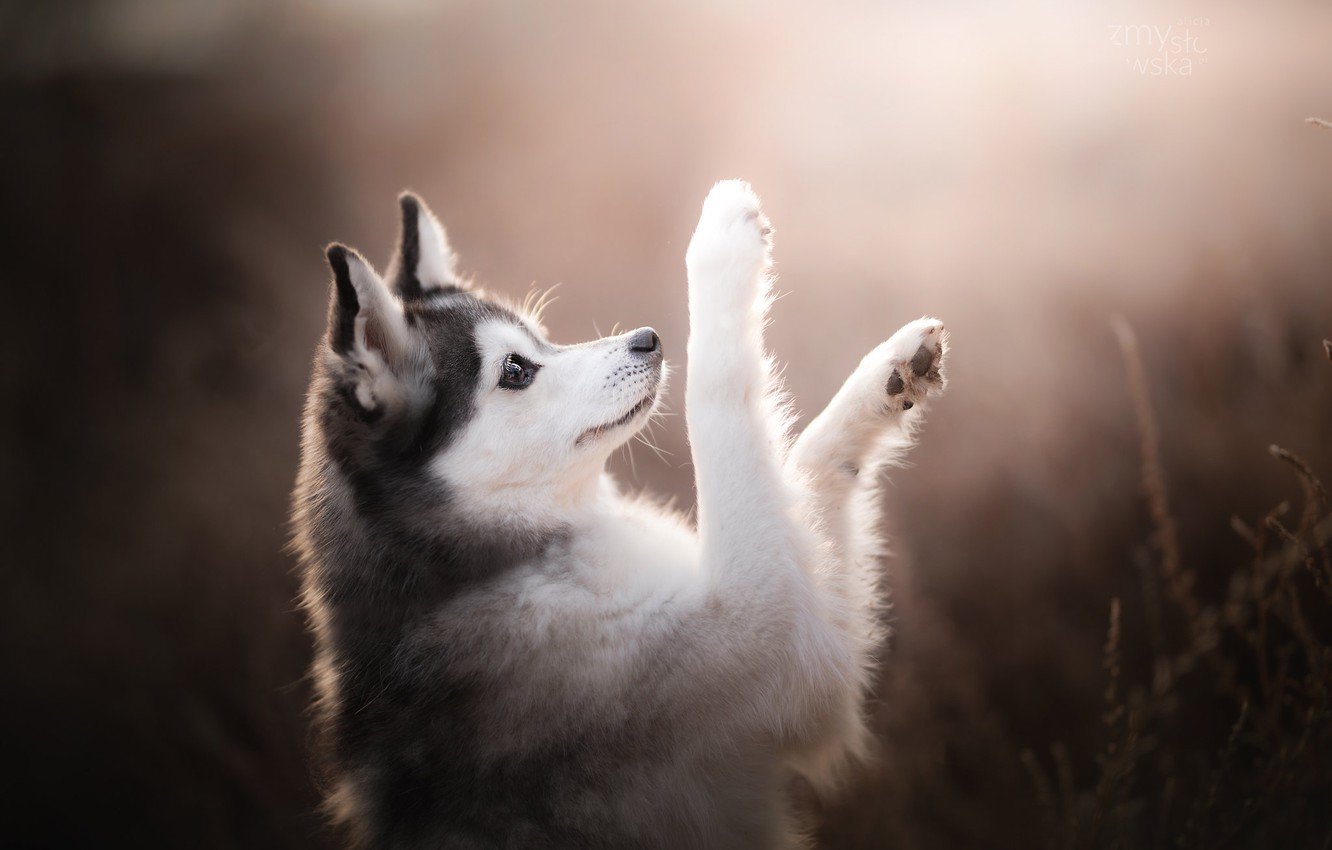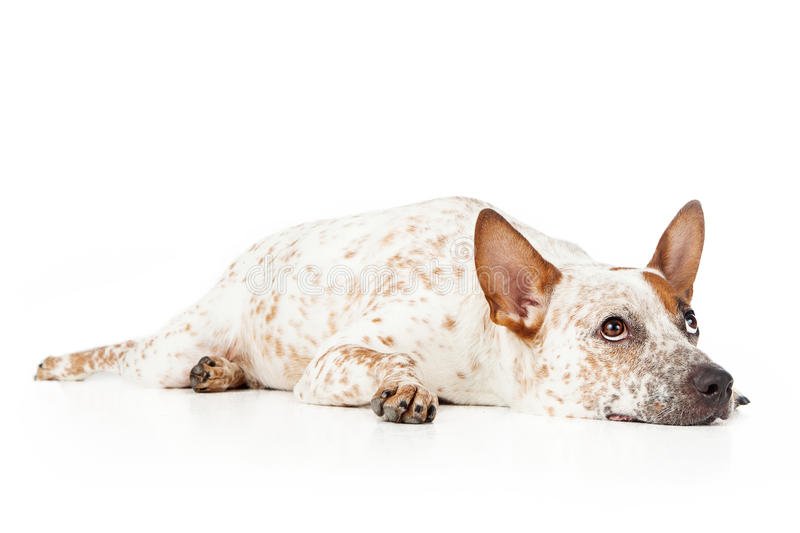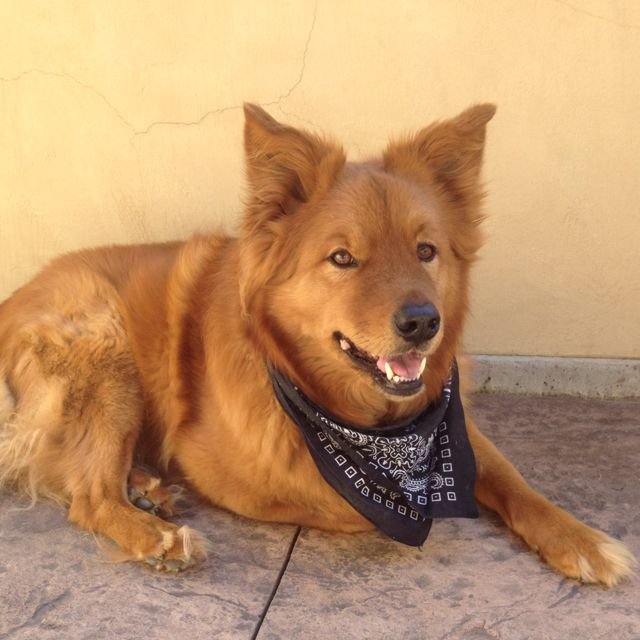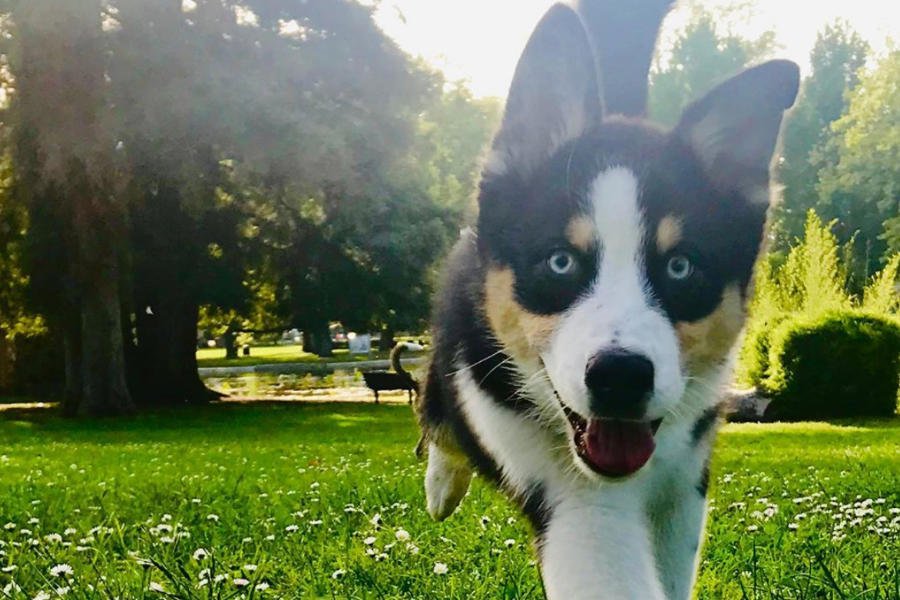Japanese Chin: Dog Breed Characteristics & Care
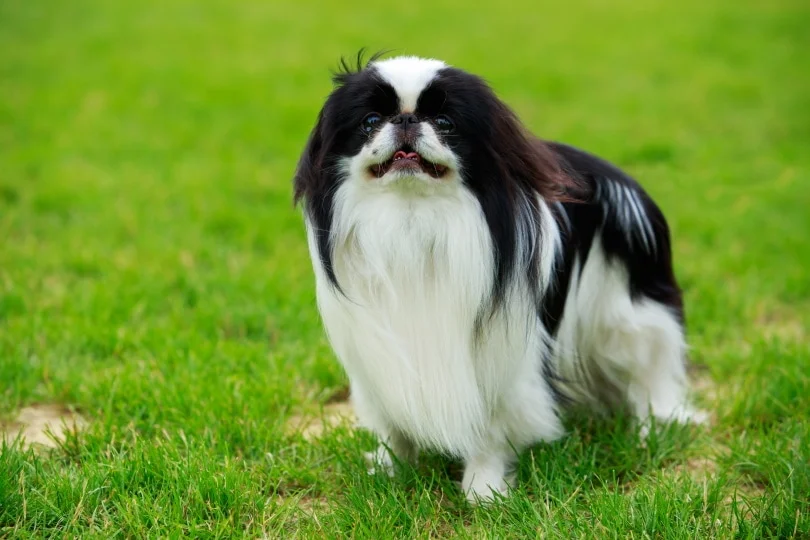
Japanese Chins are one breed that every dog enthusiast should have in their breed list. This breed is loved by people for its sweet and gentle temperament. Not just people, but also many dog breeders seek to get Japanese Chins for their breed mixes. The breed has a long history and is loved for its unique chin-whisker feature.
Read this blog to learn more about the history of the Japanese Chin breed, character traits, physical needs, appearance, grooming, training, and exercise requirements of the breed. If you’re planning to adopt a Japanese Chin into your family or if you’re looking to buy one, keep reading this blog till the end!
History of the Japanese Chin
Japanese Spaniel chin dogs are known for their gentle and loving nature. They are energetic and active dogs that require a lot of exercise. The breed is sociable and should be socialized from an early age to other animals and people. Japanese Spaniel Chin were recognized by the American Kennel Club (AKC) in year 1977.
The Japanese Spaniel was renamed “Japanese Chin” by the AKC in 1977, after it was originally known as the Japanese Spaniel. The Chin is primarily bred as a companion dog in Japan. The breed is native to China, it was later developed in Japan and introduced to Europe in 1700 hence known as Japanese Chin.
It became a favorite of Japanese nobility, and was often offered as a royal gift to diplomats and to foreigners who rendered some outstanding service to Japan. In 1853 a pair was given as a gift to Queen Victoria from Commodore Perry when he returned from his historic mission to open Japan to world trade.
Japanese chins must be groomed regularly and must have a bath, nail trimming, and ear cleaning done on a regular basis. They should eat premium dog food with high levels of protein and fiber to keep them healthy and happy.
In the ideal scenario, Japanese chins enjoy spending time indoors with their owners. However, they must be provided with adequate amounts of exercise to stay happy and healthy.
Character & Temperament of Japanese Chin
Japanese Chin dogs are intelligent and lively, making them great family dogs. They require regular exercise and will become restless if their needs are not met. Japanese Chins are prone to getting sick, so it is important to have a healthy diet for them. Japanese Chins are small dog but they can be difficult to train, so it is important to have someone with experience training the breed. They require grooming, including shaving of the head and ears, and should be brushed regularly to prevent hair mattings. Overall, Japanese Chin dogs are beautiful and loyal companions who are capable of providing years of love and laughter.
Adaptability
The Japanese Chin is a versatile dog breed that is well-suited for both indoor and outdoor lifestyles. This dog is typically easy to housetrain and is known for its playful nature. Japanese Chins can be independent and may be difficult to handle if they get into trouble, so it’s important to ensure you have the patience and resources required to care for such a sensitive dog.
This breed typically has a low energy level and requires little exercise, making it an ideal choice for people with busy lifestyles. However, this dog does require regular grooming to keep its coat in good condition and its overall health at its best. Overall, the Japanese Chin is a unique and loving dog with many qualities that make it a great family pet.
Friendliness
Japanese Chin dogs are known for their friendly and outgoing personalities. They make great family pets and are good at adapting to new situations. These dogs are easily trained, and they often respond well to gentle training methods, such as obedience classes or dog training apps. Japanese Chins are usually calm and gentle but may show aggression if provoked.
This breed can be a challenge to care for if not socialized from a young age. They must be treated with patience and given plenty of attention. These japanese chin dogs make excellent companions, especially to those who have time to provide them with daily love, affection, and attention.
Trainability
Japanese Chin Dogs are one of the most popular dog breeds, with their playful and active personalities making them a great choice for families who want a dog that is both friendly and intelligent.
This breed is known for its easy trainability, making it an excellent choice for families with children who want a dog that can easily learn new tricks and behaviors. Japanese Chins are also good natured dogs, and are generally docile and calm in the family household. As such, they make excellent pets for households with other pets. However, to keep them happy and healthy, Japanese Chin Dogs require regular exercise. This breed can be trained to walk on a leash and perform various commands, making it an ideal dog for those who want a dog that is both friendly and intelligent.
Physical Needs
Japanese Chin dogs are known for their intelligence, agility, and playful nature. They make great family pets and are generally good with other animals. Japanese Chins require a lot of exercise, but they are also very active indoors. This breed is a medium-sized dog that typically weighs between 25 and 55 pounds. They have a short coat that can be either long or short and silky depending on the temperament of the individual dog. The Japanese Chin is a dog with a wide variety of traits and personalities, making it an ideal choice for anyone wanting to adopt a companion that will be loyal and loving over the long term.
Appearance of Japanese Chin
The Japanese Chin is a small, sturdy dog that has a long snout. It has a wiry coat and may be black, brown, or tan in color. The dog’s body is slightly taut and athletic-looking. It has medium-sized eyes and ears that are erect and perky.
The bright and intelligent appearance of the Japanese chin, as well as its Oriental expression, are distinctive. The evenly patterned facial markings, as well as huge wide-set eyes, a broad head and a short wide snout, distinguish these dogs from other breeds. The weight of this toy breed varies from four to eleven pounds, and the height ranges from nine to ten inches.
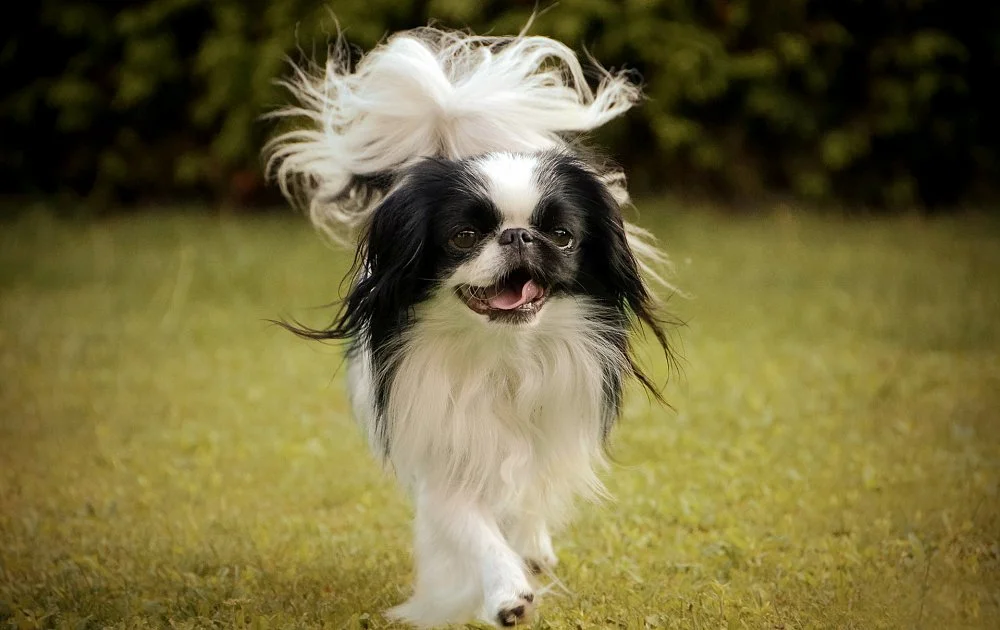
Black and white, red and white, or black and white with tan points are the options for the chin color. If any black is displayed, the term tan points refers to tan or red spots over each eye, inside the ears, on both cheeks, and in the anal vent region. All hues of red, orange, lemon, and sable are included in the term “red,” which includes any combination or overlay of black. It is suspected that British breeders probably crossbred the chin with the King Charles spaniel, and that accounts for the similarity in their appearance.
Grooming of Japanese Chin
Japanese Chin Dogs are one of the most popular dog breeds in the world. They are slim and have a delicate constitution, making them ideal for families with children and small cats. The breed is known for its refined features, including its small head and eyes, pointy chin, and long snouts.
The Japanese Chin dog requires regular grooming, including regular bathing and brushing. The dog’s hair should be groomed daily to prevent hair loss and tangles. In addition, owners should check grooming tools for signs of wear and use them sparingly. This will help the dog remain healthy and clean.
The Japanese Chin does not need frequent baths, since it is a very clean breed. That is more than enough. They’ll stay looking and smelling nice with a dry shampoo. You can also brush the coat upward and outward with a pin brush, use a mild shampoo, and towel them until they’re nearly dry. They’re ready to go. Chin hair does fall out, but a weekly brushing will keep it in check around the house.
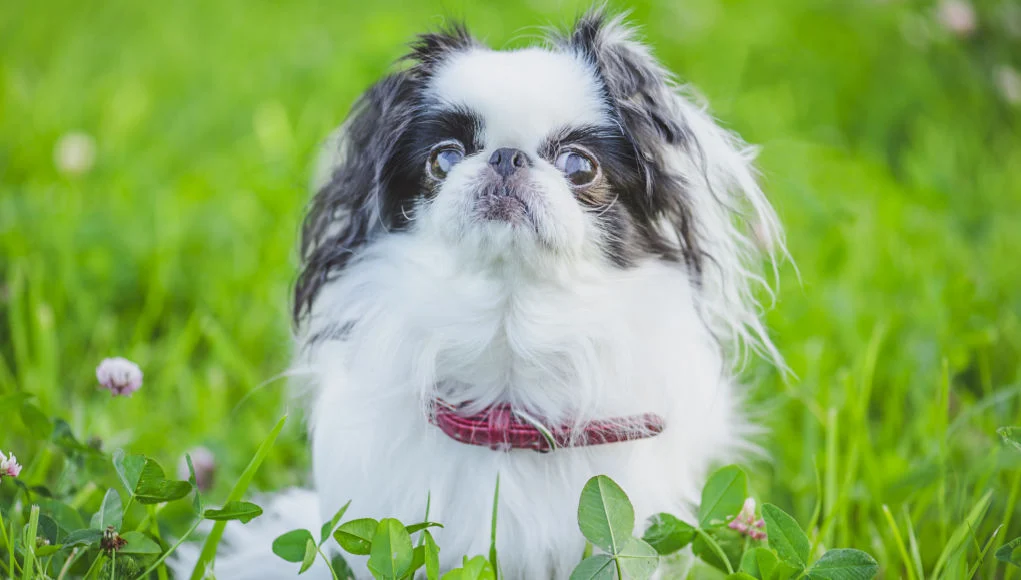
Daily brushing with a pin brush will help prevent hair from tangling. On the skin, in the nose, mouth, and eyes, as well as on the feet, check for sores, rashes, or signs of infection such as redness, tenderness, or inflammation. The eyes should be clear and free of redness or discharge. Early detection of possible health concerns will benefit from your meticulous weekly examination.
Weekly checking of his ears for redness or a foul odor, which may indicate illness, is advised. To help prevent infections, clean your dog’s ears with a cotton ball moistened with gentle, pH-balanced ear cleaner. Just clean the outer ear; don’t put anything in it.
Vaccination against rabies is also necessary as per the guidelines set by the dog’s breeder or veterinarian. Besides this, regular grooming would help keep the dog looking sprightly and beautiful.
Training of Japanese Chin
Japanese Chin dogs are intelligent and active dogs. They require ample daily exercise, and should be trained from a young age to demonstrate proper behaviors. Japanese Chin dogs need to be groomed regularly to keep their skin healthy and clean. Japanese Chins are prone to health problems such as skin problems, so it is important for them to be bath often. Proper grooming and care will help your dog live a happy, healthy life.
Exercise of Japanese Chin
Chins are known for their lack of exercise requirements. They like a daily stroll or a nice play session, and they’re content with that. They have a mind of their own and get bored with repetitive training, so training may be slightly difficult. They’ll work hard to satisfy you when they like you.
When they do something incorrectly, all you have to do is speak firmly with them. If you apply stronger corrections, your Chin will belligerently hold his ground. They may be difficult to housetrain, but with patience and consistency, you can usually expect to house train by four months of age.
– They are also good companions for people with children.
– They can be kept as indoor pets, since they don’t need a lot of daily exercise.
– They are good watchdogs, but they need a lot of attention and love.
– That is why it’s important to provide them with the right environment and care to ensure their long-term health and happiness.
Common Health Problems of Japanese Chin
Japanese Chin dogs are prone to developing several health problems, including allergies and ear infections. They are also susceptible to hip dysplasia, a congenital disorder of the hip joint. This can be prevented through regular exercise and feeding a healthy diet. Proper grooming is also essential to keep your dog’s coat and skin healthy and clean.
As with any dog breed, Japanese Chins need to be exercised regularly to stay fit and healthy. They also need access to fresh water at all times, as well as daily walks (ideally around two miles per day).
A properly-fleshed diet is important for the health of a Japanese Chin dog, and should include plenty of protein, omega-3 fatty acids, and vitamins. It’s important for them to avoid sun exposure, as they are sensitive to the sun.
In summary, Japanese Chins are loving animals with lots of personality and intelligence. As with any dog breed, they require constant care and attention in return for their loving nature.
Atrioventricular Endocardiosis
The mitral and tricuspid valves of the heart are affected by this degenerative condition. Polysaccharide build-up distortion the valve shape, causing them to leak, which occurs. Heart failure may result from this. It may be necessary to alter your diet and exercise habits.
Brachycephalic Airway Syndrome
This is a disorder of the airways that causes them to be too small for a dog’s head, leading to problems with respiration and breathing. It is most commonly seen in Japanese Chin dogs, but can also be found in other brachycephalic dog breeds, such as the Boston Terrier.
Canine Hip Dysplasia
This congenital disorder of the hip joint is a result of improper development during fetal growth. It is highly variable and often undiagnosed, which leads to gradual pain and disability over time. Treatment involves surgery to replace the dysplastic areas of the joint with healthy material.
Patellar Luxation
This is a prevalent issue in little dogs and is also referred to as “slipped stifles.” When the patella, which consists of the femur (thigh bone), patella (knee cap), and tibia (calf), is not aligned properly, it causes this condition. The dog may develop lameness in one leg or an unbalanced gait. Although the actual misalignment or luxation does not always occur until much later, it is a disease that is present at birth. Patellar luxation may lead to arthritis, which is a progressive joint disease, as a result of the rubbing it causes.
Heart Murmurs
A disturbance in blood flow through the heart chambers causes heart murmurs. They’re a warning that a heart condition might need to be monitored and treated, which is an indication of possible heart illness. The loudness of a heart murmur is graded, with one being extremely soft and five being extremely loud.
Diet and Nutrition of Japanese Chin
Japanese Chin puppies need a high-quality diet to grow and develop correctly. They should be fed dog food that is formulated for puppies, with a protein percentage of between 25 and 30 percent, and an Omega-3 fatty acid content of around 1.5 to 2 grams per week. Japanese Chin dogs require the same high-quality diet as puppies, but with a few adjustments.
These dogs need plenty of exercise to stay healthy and happy, so they should be given daily walks. Japanese Chin owners also need to be aware of the signs of canine health problems, and take action if they occur. grooming Japanese Chin dogs can help prevent hairballs and other issues, so it’s essential for them to be groomed regularly.
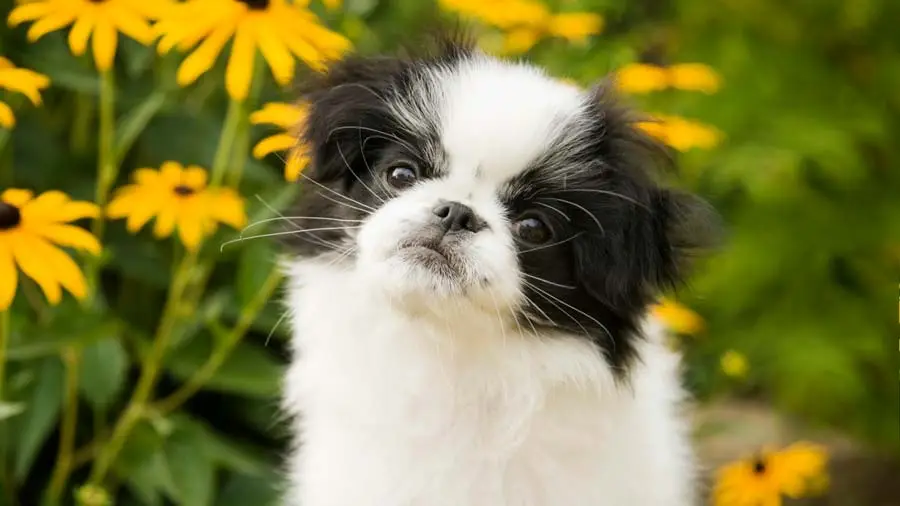
The Japanese chin may be prone to obesity and must be fed a good, high-quality diet that is properly portion controlled, which can be difficult to avoid when free-feeding or spoiling with table scraps.
Japanese Chin dogs are known for their unique appearance and temperament, which makes them ideal for anyone looking for a dog with unique looks and temperament. However, they do come with their fair share of health issues, so it’s important for owners to keep an eye out for any signs that their dog is unwell.
Where to Adopt or Buy a Japanese Chin
Japanese chin dogs are popular with families and individuals because of their playful and sociable personalities. These dogs require regular exercise and a lot of daily attention, so owners must be willing to provide both of these things for them. On average, Japanese chins weigh between 12 and 20 pounds, and they have a high energy level, making them prone to becoming overstimulated.
Separation anxiety is a common issue in the Japanese Chin, who don’t like being severed from their people.
Never buy a puppy from an unscrupulous breeder, puppy mill, or pet store to ensure that you have a healthy dog. See if the breeder’s breeding dogs are free of genetic disorders that may be passed on to the pups, and that they have proper temperaments, by looking for a reputable breeder.
Without a clear idea of what it means to own a chin, many people buy them. Several Chin babies and kittens are in need of loving adoptive homes. Contact the national breed club or a local breed club, and they may point you to a Chin rescue if you don’t see one listed for your region.
Japanese Chin Pros & Cons
The Japanese Chin is a breed of dog that has both dog- and chin-like features. With a long, muzzle-like face, jowls, and small eyes, it has a dog-like appearance. But its body structure resembles that of a chin. This breed is affectionate and loyal companionship with an active and playful demeanor. It’s also good with children, and it tolerates a variety of environments. However, it can be difficult to housebreak, and it needs plenty of exercise to keep it happy and healthy. Overall, the Japanese Chin is an intelligent breed that can make a good family pet or companion.
Japanese Chin Breed Conclusion
Japanese chin dogs are intelligent, lively, and easy to train. These dogs need a lot of exercise and should be kept on a leash when outdoors. They are good with children and other pets and can be trained to perform tricks.
Japanese chin dogs have a lifespan of 10-12 years. They are known for having beautiful coats, but require regular dental care and should have their nails trimmed regularly. Their short hair requires them to be well-ventilated, so they should not be kept in hot climates for long periods of time.
The Japanese Chin is a breed of dog that originated in Japan. This breed has long, silky chin whiskers and a multitude of coats ranging from short-haired to long-haired. These dogs are known for their intelligence and high-spirited personalities. They make excellent family pets and tend to be good with children. However, they require regular exercise to prevent boredom-induced destructive behaviour problems. With a patient temperament and an eager desire to please, this breed is well-suited for many households.
Frequently Asked Questions
What are the benefits of having a Japanese Chin dog?
If you’re looking for a dog that is loyal and intelligent, then the Japanese Chin dog may be the perfect breed for you.
This breed is known for its athleticism and playful personality. They are also good companion dogs and are known to be good protectors too. Some of the benefits of owning a Japanese Chin dog include providing companionship, protection, and hunting skills.
How much does a Japanese Chin dog cost and what do I get when I buy one?
A Japanese chin dog can cost anywhere from $800 to $2000. When you buy one, you will get a dog that is considered to be medium to high energy. In addition to this, Japanese chin dogs come in a variety of colors and sizes.
Where are Japanese Chin from and how did they originate?
Japanese Chin dogs are a type of Shih Tzu dog. They were originally bred in Japan and are known for their long, curly hair. These dogs are usually very active and playful, making them great pets for people who like to take walks outdoors.
How much does it cost to own a Japanese Chin Dog and what kind of care do I need to give them?
The average price for a Japanese Chin Dog is somewhere between $1,000 and $3,000. Prices vary depending on the breeder, but usually, these dogs require daily exercise and a nutritious diet that includes plenty of fresh vegetables and fruit.
As a result, kennels that keep Japanese Chin Dogs typically charge hourly rates for their services. Generally speaking, these dogs are very easy to train and make good pets for anyone who is willing to put in the effort.
What is the difference between a Japanese Chin and a Pekingese?
The main difference between a Japanese Chin and a Pekingese is their size. Japanese Chins are typically smaller than Pekingese dogs, with the Japanese Chin typically measuring between 12-15 inches from head to tail, while the Pekingese can measure up to 18-20 inches in length.
Japanese Chins also have a long, flat face with a drooping lower lip, making them recognizable as chins. They also tend to have a chin scrunching facial expression which is where their chin juts outwards and their eyes squint – giving them the appearance of wrinkled brows.
Japanese Chins are good with children and other pets, but they may be protective of their territory.
Why is the Japanese chin referred to as a “cat-like” dog?
The Japanese chin dog is often referred to as a “cat-like” dog because of its characteristic face, long body and small stature.
Are Japanese Chin good apartment dogs?
Japanese Chin dogs tend to be good apartment dogs, as long as they are provided with enough exercise and a clean environment. Japanese Chin puppies need a lot of stimulation, so it is important that the dog receives at least an hour of outside playtime each day.
You should continuously educate youngsters on how to greet and handle dogs, as well as constantly monitor any dog-dog interactions between young children to prevent any biting or ear or tail pulling on the part of either party. Never allow your child to approach a dog while it is eating or sleeping, or to try to steal the dog’s food. No dog should be left alone with a kid, no matter how nice he is.
How would pet dogs react if their owner stopped feeding them?
If you stop feeding your dog, they may become irritable and refuse to eat. To make sure they don’t get dehydrated or overweight, always give them enough water and snacks. In addition, try to provide them with nutritious food so they remain healthy and happy.

